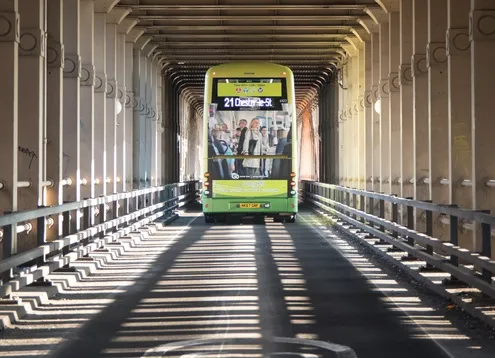Transport company Gruppo Torinese Trasporti (GTT) has chosen Papercast’s solar solar-powered e-paper bus stop display system, which uses E-ink technology, to replace the current LCD based passenger information system in Turin, Italy. The programme is part of a City-wide programme to improve the quality of information provided to passengers at bus stops with a self-sustainable solution.
Papercast will supply 13.3 solar powered e-paper displays fully integrated into GTT’s live general transit feed specification data feed to show live arrival information without needing to change batteries. The current LCD and LED passenger information displays require battery replacements every two weeks across the network.
The display system provides outdoor visibility and can be installed ‘off-the-grid’ within hours and the cloud-based management platform provides control and real-time data integration.
Gruppo Torinese Trasporti chooses Papercast for bus stop display system, Turin
Transport company Gruppo Torinese Trasporti (GTT) has chosen Papercast’s solar solar-powered e-paper bus stop display system, which uses E-ink technology, to replace the current LCD based passenger information system in Turin, Italy. The programme is part of a City-wide programme to improve the quality of information provided to passengers at bus stops with a self-sustainable solution.
October 18, 2017
Read time: 1 min










